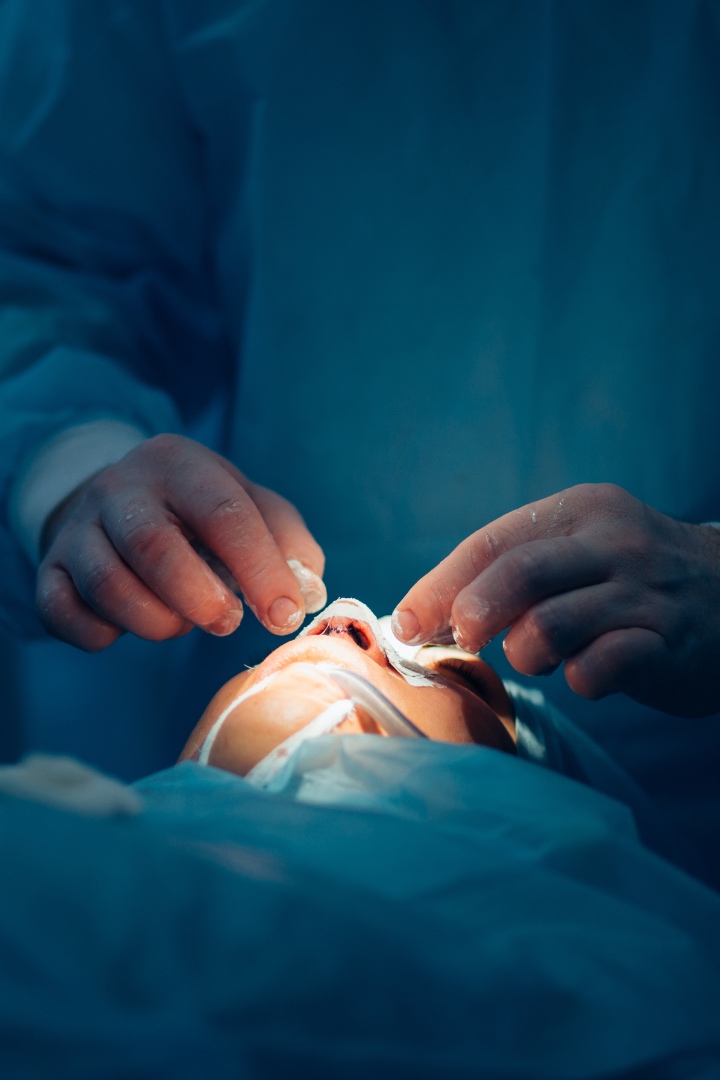We report on the current ‘cosmetic surgeon’ crisis in australia and proposed changes to the industry.
The recent and much publicised joint investigation between Four Corners, The Age and Sydney Morning Herald into some alarming practices at a popular cosmetic surgery clinic has put the Australian aesthetics industry under close scrutiny and prompted a renewed push for increased regulation.
The debate is centred on the use of the title ‘cosmetic surgeon’, with health ministers calling for a review of the industry and more transparency for consumers.
The investigation reported allegations of medical misconduct by cosmetic surgeon Dr Daniel Lanzer, including hygiene and safety breaches, with multiple patients saying botched surgeries left them with pain or requiring further medical treatment.
Shortly after the program aired in October 2021, the Australian Health Practitioner Regulation Agency (AHPRA), the medical regulator, launched an investigation into Dr Lanzer. A statement on the AHPRA website on October 30 said Dr Lanzer had agreed not to practice medicine in Australia while the investigation continued.
Since then, a senior associate at Dr Lanzer’s clinic, Dr Daniel Aronov (a cosmetic surgeon with more than 13 million TikTok followers) has also been banned from performing cosmetic surgery in Australia and ordered to remove all procedure- related material on social media.
Landmark reviews by health regulator and state and federal governments call for overhaul of cosmetics industry
AHPRA works with Australia’s national boards to regulate the country’s registered health practitioners. One of its purposes is to manage complaints and concerns raised about health practitioners.
The regulator is currently undergoing a major review of the cosmetic surgery sector, its first- ever review into patient safety. AHPRA’s review, led by the outgoing Queensland Health Ombudsman Andrew Brown, will examine the advertising of cosmetic surgery, the current codes of conduct and protocols around how complaints are handled.
AHPRA CEO Martin Fletcher said the cosmetic industry had ‘worrying features’ which made it riskier than other areas of medicine.
‘Among them, corporate business models that are allegedly placing profit over patient safety, procedures being undertaken for no medical need, limited factual information for consumers, and the exponential growth in social media that often emphasises benefits and downplays risks,’ he told the ABC.
‘Cosmetic practice has rapidly grown as a multi-million dollar entrepreneurial industry with practices and marketing methods that raise ethical dilemmas,’ he added.
At the time of writing in mid- December 2021, the federal and state governments just launched a landmark review aimed at overhauling laws into who can call themselves a cosmetic surgeon, and increasing the penalties for deceptive advertising and social media abuses, according to the Sydney Morning Herald.
Federal Health Minister Greg Hunt has asked state health ministers to make new laws a priority.
On December 12, the states and Commonwealth released a 108-page Regulation Impact Statement (RIS) into the use of the title ‘surgeon’ and ‘cosmetic surgeon’. It will be open for public consultation* until April 1, 2022, with the public invited to anonymously provide feedback about their experiences and submissions.
According to the statement, an anonymous survey and direct submissions would help devise policy responses to reform the cosmetic procedures industry.
The consulting document canvasses a series of options, including restricting the title ‘surgeon’ under National Law and undertaking major public information campaigns.
Other options include strengthening the existing framework through administrative rather than legislative mechanisms and increasing provider liability for non-economic damages.
A fourth option is to maintain the status quo, but this seems unlikely.
The consulting document said ministers were ‘particularly’ concerned that the practice of cosmetic surgery and widespread use of the informal title ‘cosmetic surgeon’ may be strongly and disproportionately associated with these risks and harm. It said there was an information and power asymmetry between patients and practitioners, which was contributing to the risk of consumer harm.
‘It can be difficult for the public to obtain information from neutral and informed sources, particularly as most cosmetic surgery consumers obtain information about prospective procedures from the practitioners that perform those procedures and from social media,’ the report says.
‘This RIS is interested to discover how widespread cosmetic surgery resulting in significant harm and complications [might] be, and whether medical practitioners’ qualifications are contributing to potential harm.’
It said advertising and marketing material must comply with a series of laws. Breaches of the law for advertising offences can incur financial penalties of $5,000 for each advertising offence for an individual and $10,000 for a body corporate.
Public consultation for the review began on 21 December, 2021 and closes on 1 April, 2022. A report is expected around the middle of the year. [A]A
* If you would like to participate in the survery, visit engage.vic.gov.au/medical-practitioners-use-title-surgeon-under-national-law
Who can be a cosmetic surgeon?
Who can be a plastic surgeon?
Often ‘plastic surgeon’ and ‘cosmetic surgeon’ are used interchangeably, but by law only practitioners who have completed an additional 8-12 years of specialist plastic surgical training, beyond their medical degree, can call themselves plastic surgeons.
As it stands, anyone with a basic medical degree is able to call themselves a ‘cosmetic surgeon’. This means the ‘cosmetic surgeon’ title can cover a wide spectrum of doctors, from those with no formal surgical training to those who are highly skilled with decades of experience. This unusual ‘loophole’ can be exploited because there is no formal pathway for any doctor to specifically train in cosmetic procedures – and it is this ‘loophole’ that health ministers are currently consulting on.
Indeed, the title of ‘cosmetic surgeon’, and who can use it, is at the forefront of the federal and states review. This is a space we will be watching closely.













